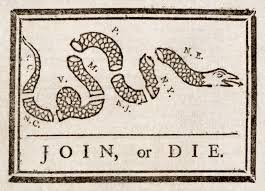Paoli Massacre: Part 5 of 7
The Charge
The British charged at the flashes, ripping bayonet holes into the deformed American line. The Americans gave way quickly. Many were cut to bits; others surrendered; yet others fled.
Colonel Richard Humpton's 2nd Brigade got the worst of it. According to Wayne, Humpton reacted slowly to his order to turn right. Then, as the army tried to exit toward the left, Humpton mistakenly spun right — right into the bayonets of the enemy. Worse yet, Humpton moved his men in front of the campfires. It was as if a spotlight had been shone on them. Gleaming bayonets ripped into their flesh and the Americans' screams filled the dark air.
...the Most Dreadful Scene I Ever beheld.A British officer reported his impressions:
[General Grey] came to the head of the battalion and cried out "Dash on, light infantry!" and, without saying a word, the whole battalion dashed into the wood, and guided by the straggling fire of the picket, that was followed close up, we entered the camp and gave such a cheer as made the wood echo. The enemy were completely surprised; some with arms, others without, running in all directions in the greatest confusion. The light infantry bayoneted every man they came up with. The camp was immediately set on fire, and this, with the cries of the wounded formed altogether one of the most dreadful scene I ever beheld. Every man that fired was instantly put to death.
The 44th Regiment had followed the light infantry into the American camp wielding terrifying bayonets. Then the 42nd Regiment followed setting fire to huts. A British officer reported, "As many of the enemy would not come out, chusing rather to suffer in the flames than to be killed by the bayonet."
Another officer remembered:
The whole action was a "dreadful scene of havock — the shrieks groans shouting imprecations deprecations the clashing of swords and bayonets [with] no firing from us & little from [the Americans] except now & then a few scattering shots were horrible to witness.
When Wayne saw the slaughter being inflicted, he formed his light infantry to cover his retreat. Miraculously, Wayne was able to prevent his four cannon from being captured. The Americans withdrew west toward White Horse Tavern and General Smallwood's militia. Smallwood, however, had heard the sound of fighting and was bringing his men toward the battle along the Lancaster Road. Wayne's retreating men ran smack dab into Smallwood's creating yet another chaotic scene. Soldiers and militiamen fled in all directions. Wayne and Smallwood tried to rally the troops but to no avail.
Wayne and Smallwood gathered their troops near West Chester. Wayne wrote Washington a letter which put the best possible spin on the events of the night. He also commended all his officers for their behavior. Then the two generals went off to find Washington and the rest of the army.
General Grey, following orders from General Howe, returned to camp immediately after the raid was complete. The British set out early the next morning for the fords along the Schuylkill.



